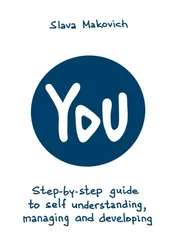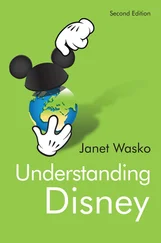Our enthusiasm for art and art exhibitions extends far beyond the 'popular classics'. The art gallery devoted to modern and experimental art, the huge 'Tate Modern' in London has proved to be astonishingly and unexpectedly popular since it was first opened in 2000. Visitors discriminate of course; they love this, they do not understand that, they think such-and-such is rubbish. But they come back to look, to reconsider, and to extend their pleasure in new art. That pleasure has also had a boost from a number of sculptures and 'installations' set up around the countryside. These large sculptures are created by our finest contemporary artists and they provoke debate, controversy and, often, passionate delight. The one which immediately became a national icon is Anthony Gormley's 'Angel of the North'. Because of its size and its position near the main northward motorway, it has been seen, with excitement and admiration, by millions of people. (Not everyone likes it, but this huge 'angel' has become a national talking point - and a source of pride.) Perhaps what I am saying here is that we really do care for 'civic art', and we are learning to care more.
Are we are a literate nation? Inevitably our educationalists and university teachers are worried about the effects of the computer revolution on the next generation. Will our children grow up with undeveloped imaginations, virtually incapable of reading a complete book? Such questions trouble all prosperous nations. I cannot look into that future, but I can say something about adult reading at the present time in Britain.
If sales of books in relation to population count for anything, we seem to read more serious literature than almost any other nation. Thousands of new books are published every year, including literary' fiction and poetry. Novels and stories by British writers and writers in English are constantly discussed in the review sections of our national papers and on the BBC. Some of us blame ourselves for not reading very much literature in translation, although it seems to me that we can find a wider range than you can. One big difference is in the quality of translation. I can go into any decent bookshop in England and find three (or more) different translations of great Russian classics. These are modern translations that can be compared by readers and judged by specialists. None of them is perfect but the translators are professional, and expected to be thoroughly familiar with the language from which they are translated. In Russia, by contrast, your translations of English classical fiction are frequently old and inadequate, often made by people ignorant of our culture and a real understanding of our language. They cannot recognise the details such as the metaphors, the ironies, the nuances that are of the essence of a work of literature. Therefore, very often, what you read is a travesty of a fine work of English literature. We are puzzled by the lack of serious Russian literary translators who will work professionally and humbly with English colleagues in order to achieve up-to-date accurate and full translations.
Literature is, of all the arts, the one in which the English (and Irish, Scots and Welsh) excel. The culture of 'literary prizes' can distort expectations if 'winning the prize' becomes the chief aim of our writers. Nonetheless, that culture has produced widespread interest in modern 'literary' fiction. Our Booker prize-winners not only receive publicity and discussion of their merits, but also huge increases in sales. People actually read the books! As indeed they should, since the current generation of novelists contains some wonderful writers, more subtle, intense and linguistically inventive than those for several generations.
I have already discussed [in Part 6, Chapter 2] the new cultural phenomenon of 'reading groups' - groups of friends or acquaintances who meet once a month to discuss a book that they have all agreed to read beforehand. We know that at least 60,000 of these groups flourish, meeting in the evenings, at the weekends, or perhaps on a weekday afternoon. Such occasions are jolly and sociable - but the people come to discuss books, because genuine commitment to reading is important to them.
Sometimes the reading group is not enough. Oxford University is only one of many universities which offers a range of classes on Literature, History, Philosophy, Music, Art Appreciation, and so on for ordinary adults, both in Oxford city and in other towns nearby. Classes meet for two hours once a week. During the twenty weeks of study students in a literature class will read perhaps six or seven classic novels and the work of two poets. Class discussion may be devoted for several hours to the analysis of a novel. A whole session may be spent on reading and thinking about a single poem. These classes are attended by a small minority of people - but that minority runs into thousands in and around Oxford, and I have no reason to believe that they are less desired in other parts of the country.
The Russian TV channel 'Culture' seems to have a variety of fascinating programmes in which paintings, music, novels, poems and performances are discussed and analysed by people who clearly enjoy them. That is our experience too: in Britain we believe that you learn about music by listening to it, painting by looking at pictures, and literature by reading the words on the page. We believe that since each work of art is distinct, you get closer to its essence by studying what it is in itself. Later you can make connections with other works of art, and consider some of the ideas they share or do not share. Works of art are concrete, actual, and unique. We do not believe that turning art into generalisations is the highest form of appreciation.
All over Britain you will find people participating in culture by singing, painting, acting, writing poetry themselves. They are also reading, looking, listening, going to theatres and films; studying the history of human beings and also the natural history of their area; exploring architecture and ancient sites; making beautiful gardens. They do all these things out of love and curiosity, while teachers and specialists help them to understand, and to develop their imagination. This, we believe, is how a people should celebrate the culture that satisfies the soul.
Chapter 5 Are We a Godless Society?
When I wrote the first edition of Understanding Britain in 1991 Russians were beginning to enjoy the freedom to worship in a church, to speak about their private religious feelings, and to think about how to bring up their children in a moral and virtuous way which included religious teaching. I was often asked about the great advantages of living in a 'truly Christian society'. Some of my answers puzzled or displeased my listeners. I think they would be less puzzled today, since Russia has become, once again, a country with a state religion, a variety of other Christian sects and substantial numbers of non-Christian religious believers. The experience has enriched the lives of many devout people, but the majority of Russians, especially the young, do not seem to be ardent Christians, while the problems of bringing up children to be moral and virtuous remain as complicated as ever.
Believers and Non-believers
When we turn to thinking about Britain, my task is made harder because religion - for believers is an intensely personal matter, so that I cannot go very far in speaking for the diverse millions of my fellow-countrymen. What do we know from statistics? In the 2001 Census for the first time there was an optional question about religious adherence. About 92% chose to answer the question, and of those, 72% said that they were 'Christian'. (I write later in the chapter about other religions.) The census answer seems clear enough - nearly three-quarters of the population are Christian religious believers. But further investigations a few years later revealed that many people answered this question as a cultural question. They were saying that they identified themselves with the traditional, historical, Protestant culture of Great Britain. But when they were asked what they believed or in which church they were active, they gave very different answers. A social survey in 2006 found that 66% of the British population had no connection to any religion or church. In another poll in 2003, about 25% claimed to be members of an organised religion, but only 18% said that they were practising members who actually went to church. All later polls confirm the same thing: belief in a religion and attendance at a church have declined sharply and the vast majority of people are simply not interested.
Читать дальше












